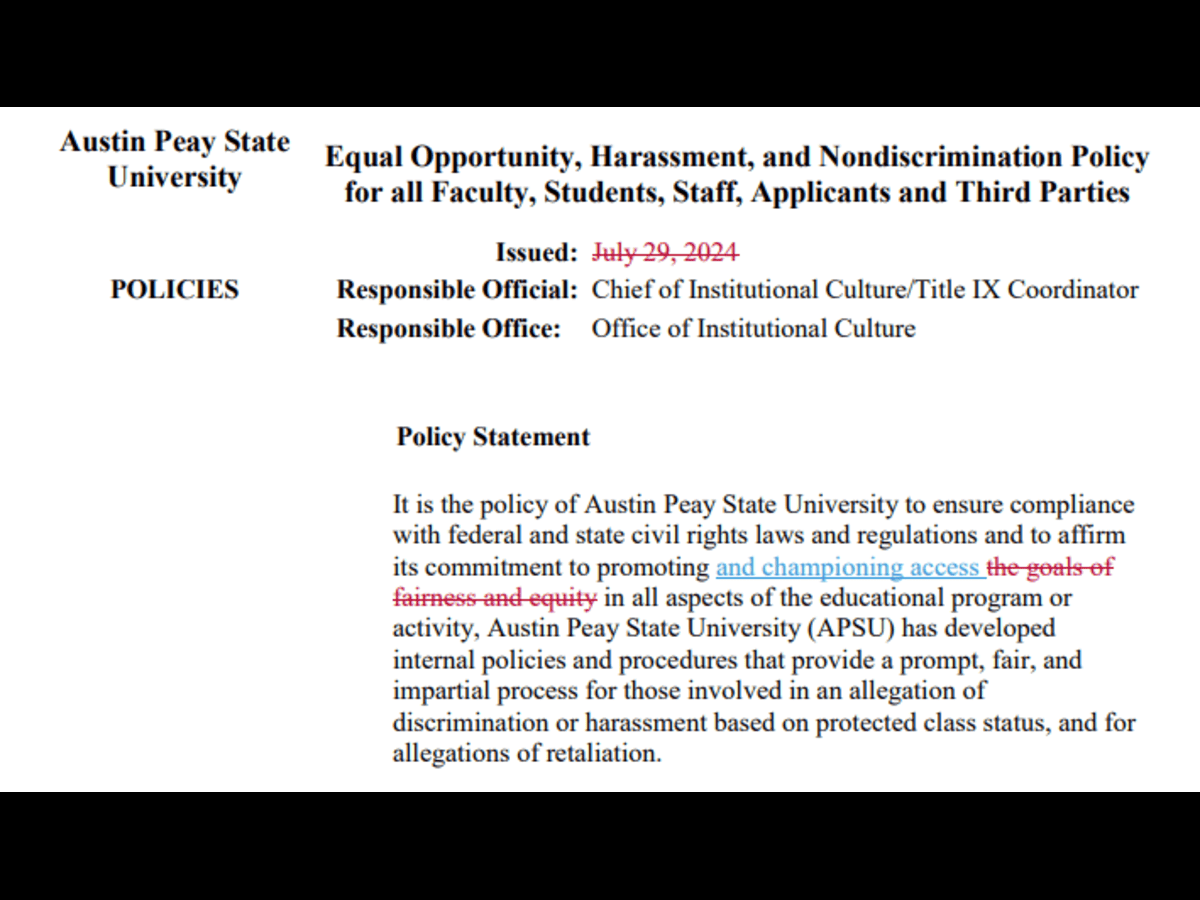From Public Relations and Marketing
Austin Peay State University took a major step forward today with the announcement of the first doctoral degree in the institution’s history. Beginning this fall, the APSU Eriksson College of Education will offer a Doctor of Education (Ed.D.) degree in Educational Leadership for K-12 professionals looking to advance their careers. Earlier this month, the program received its final approval from the Southern Association of Colleges and Schools Commission on Colleges (SACSCOC) —the region’s higher education accrediting body.
“The approval of the level change by SACSCOC marks a historic day for APSU as it joins the ranks of the nation’s doctoral universities,” Dr. Rex Gandy, APSU provost and vice president for affairs, said. “With this approval the University is better positioned to serve the educational needs of students at all degree levels.”
The University was previously classified as a Level IV institution by SACSCOC, which meant the highest degrees Austin Peay could offer were master’s degrees and education specialist degrees. With the approval of the Ed.D. program, SACSCOC has reclassified the University as a Level V institution, opening the door for doctoral degrees.
“The faculty and staff within the Eriksson College of Education saw the need for this degree more than a decade ago, and they’ve worked tirelessly to develop a program that will meet the needs of the educators in our region as well as transform this University,” Dr. Alisa White, APSU president, said. “I’m excited to welcome our first doctoral students to campus this fall and watch them, and this program, grow.”
The Ed.D. is designed to meet the needs of several groups of potential students, including:
- Current educational leaders in the K-12 environment who currently hold an administrative license.
- Classroom teachers who have earned master’s or Ed.S. degrees who wish to acquire the administrative license while obtaining a doctorate.
- Classroom teachers who have earned master’s or Ed.S. degrees who do not wish to be a school administrator but desire to become an educational leader.
- Current educational leaders in the K-12 environment who need to earn the doctorate to either enhance their marketability or to improve their skills.
- Military personnel who desire to continue their education after the master’s degree.
The new degree, housed within the college’s Department of Educational Specialties, will consist of 60 credit hours beyond a master’s degree, with students taking classes in leadership theory and practice, research and statistics, organizational analysis and analysis of educational policy, in addition to writing a dissertation. The program will enroll 20 students into this fall’s initial cohort, with the department admitting additional students each subsequent year.
“Our University was founded by teachers, so it is fitting that our first doctoral degree program is in the field of education,” Dr. Prentice Chandler, dean of the Eriksson College of Education, said. “Today’s announcement is the culmination of a lot of hard work by our faculty and staff, and we are excited to start a new chapter in the college.
“Our Ed.D. will integrate knowledge of theory and research and applications of best practices, with special attention to strengthening the dispositions necessary for leadership in educational settings,” Chandler added.
The nation is expected to see a 6 percent increase in elementary and secondary school administrators by the year 2024. In Tennessee, this equates to 5,680 positions, with approximately 220 annual job openings.













